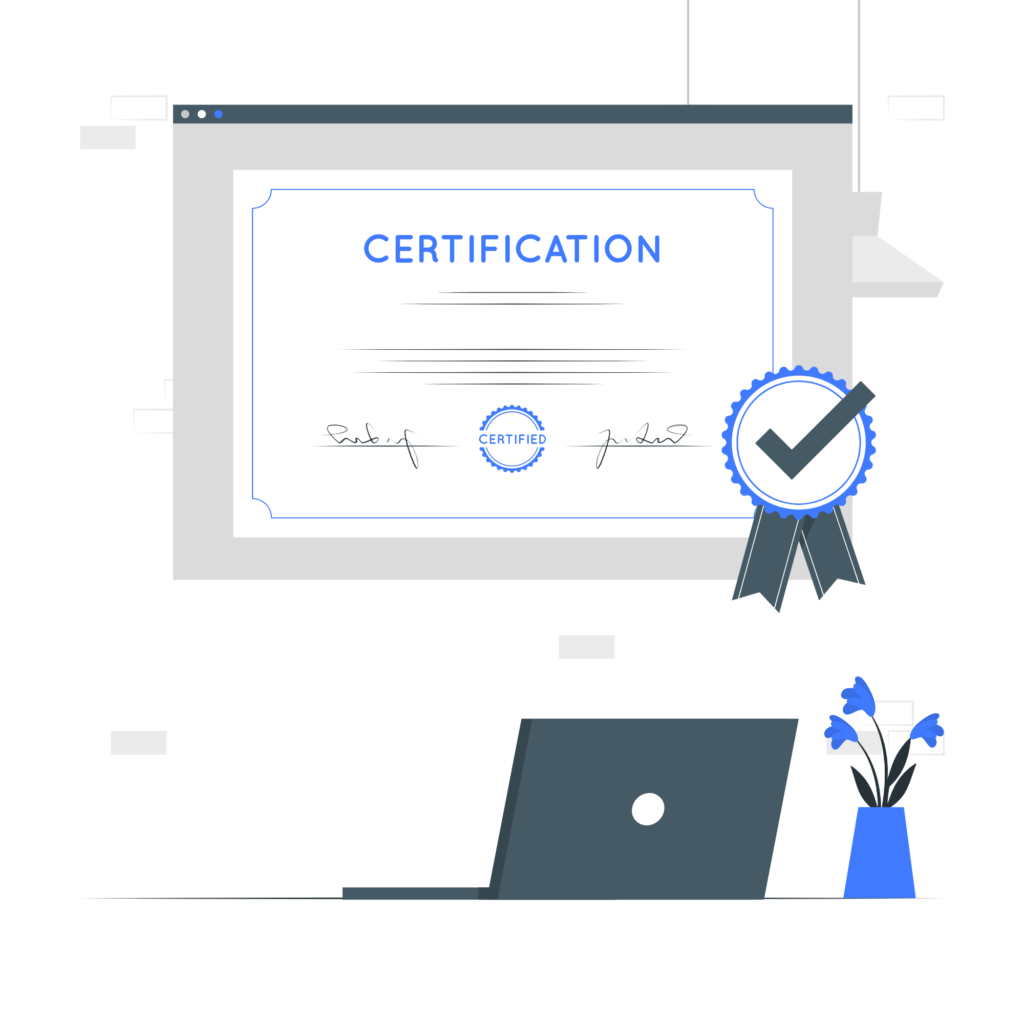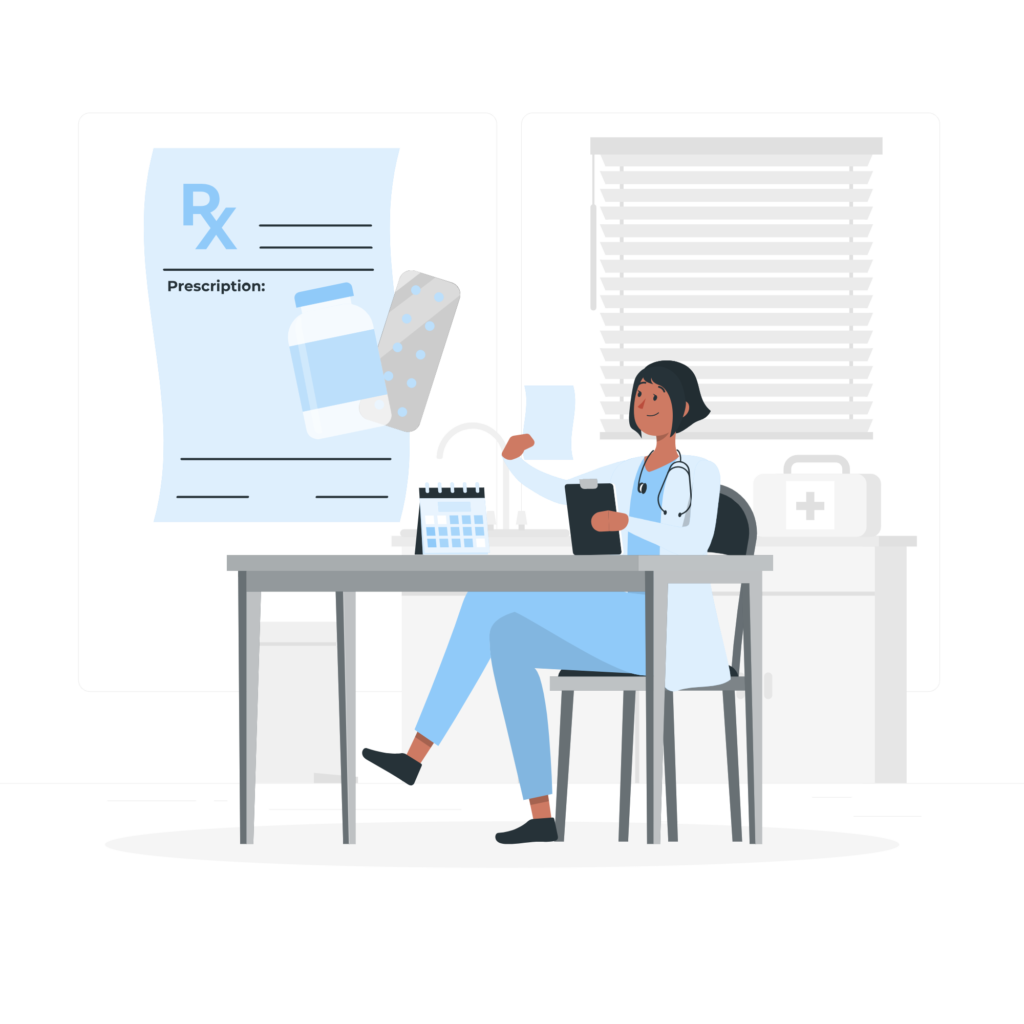Reminding the Basics: What’s DEA Registration All About?
Simply put, DEA registration is like a unique ID that the Drug Enforcement Administration (DEA) gives to healthcare providers who are allowed to prescribe controlled substances. This ID number helps track the distribution of controlled substances and makes sure they’re not being abused or diverted.
Under the Controlled Substances Act (CSA), when a healthcare provider prescribes a controlled substance, they need to include their DEA number on the prescription. This way, only qualified practitioners can order these medications, and they (and their employers) are responsible for proper usage.
What is the Controlled Substances Act?
It’s a federal law that was put into effect back in 1970 to regulate the use and distribution of certain substances that could potentially be abused or cause dependency.
Under the CSA, substances are categorized into schedules based on their medical benefits, the likelihood of abuse, and safety. The idea behind this system is to make sure that these substances are available for legitimate medical purposes while also preventing any misuse or abuse.
Why is DEA so Important?
One of the ways the DEA helps is by keeping track of who is prescribing these substances and where they’re being prescribed. This information is crucial in identifying potential sources of misuse or abuse.
Another important role of the DEA is holding both prescribing practitioners and healthcare institutions accountable. This helps to ensure that these substances are being used appropriately and that those responsible for prescribing them are following the proper procedures.
All of this increased tracking and accountability ultimately leads to better control of the abuse of controlled substances. And in a time when addiction and overdose rates are at an all-time high, this control is more important than ever.
What’s the Difference Between CDS & DEA?
A CDS license is issued at the state level and allows licensed healthcare practitioners to work with controlled substances. It’s an essential authorization that you’ll need to have if you’re going to be prescribing, administering, or dispensing these powerful medications.
On the other hand, a DEA license number is assigned by the federal Drug Enforcement Administration and allows practitioners to write prescriptions for controlled substances. This is a crucial piece of documentation that you’ll need to prescribe these medications safely and responsibly.
While your professional practice acts may allow you to prescribe, administer, or dispense medications, including controlled substances, a DEA certificate is required to write prescriptions for these substances.
It’s important to remember that DEA registration is required for each state in which you wish to prescribe controlled substances. Yet, not all states require healthcare practitioners to obtain a CDS registration, authorizing them to work with controlled substances under their medical license.
| Only Medical License Required | Additional Controlled Substance License Required |
| Alaska | Alabama |
| Arizona | Connecticut |
| Arkansas | Delaware |
| California | DC |
| Colorado | Guam |
| Florida | Hawaii |
| Georgia | Idaho |
| Kansas | Illinois |
| Kentucky | Indiana |
| Maine | Iowa |
| Minnesota | Louisiana |
| Mississippi | Maryland |
| Montana | Massachusetts |
| Nebraska | Michigan |
| New Hampshire | Missouri |
| New York | Nevada |
| North Carolina | New Jersey |
| North Dakota | New Mexico |
| Ohio | Oklahoma |
| Oregon | Puerto Rico |
| Pennsylvania | Rhode Island |
| Tennessee | South Carolina |
| Texas | South Dakota |
| Vermont | Utah |
| Virginia | Wyoming |
| Washington | |
| West Virginia | |
| Wisconsin |
DEA vs. NPI Number: What’s the Difference?
DEA Numbers and National Provider Identifier (NPI) numbers are both unique identifiers used in the healthcare industry. However, they serve different purposes and are issued by different agencies:
Issuing agency: The NPI is issued by the Centers for Medicare & Medicaid Services (CMS), while the DEA Number is issued by the Drug Enforcement Administration (DEA).
Purpose:
- The NPI Number is used for Medicare & Medicaid billing and helps identify and track various provider transactions. It’s a critical piece of information for healthcare providers who want to be reimbursed for their services.
- The DEA Number, on the other hand, is specifically required for prescribing and administering controlled substances. It’s a way to help regulate the use of these powerful medications and ensure that they are only prescribed when medically necessary.
It’s important to note that all healthcare providers with a DEA Number will have an NPI, but not all healthcare providers with an NPI will have a DEA number.

DEA Registration’s Importance for Locum Tenens Providers
DEA registration is crucial for all healthcare providers who work with controlled substances, including locum tenens. It ensures compliance with federal regulations and promotes the safe and legal prescription and distribution of these substances.
Along with a state-specific DEA license, you must also be credentialed at each facility where you work. This involves submitting documentation of your education, training, licensure, and work history, as well as undergoing a background check and any necessary drug screenings. Depending on the facility, there may be additional requirements, such as completing specific training modules or meeting clinical competencies.
Read more about the IMLC, Medical License Renewal & CME Requirements
It’s important to note that both DEA registration and credentialing requirements can vary from state to state, so it’s essential to ensure compliance in each location where you plan to work. Failure to comply with these regulations can result in penalties such as fines and criminal charges.
Do All Locum Tenens Providers Need DEA Registration?
The short answer is no, but it depends on the provider’s practice circumstances. For instance, if a locum tenens provider is working solely in a hospital or clinic setting, they can use the facility’s DEA registration instead of registering independently. However, if they practice outside of such settings, they must obtain their own DEA registration.
Keep in mind that the facility’s DEA registration may not cover all controlled substances the locum tenens provider needs to prescribe or dispense, or the entire period of their practice. In these cases, the provider must obtain their own DEA registration to ensure compliance with DEA regulations.
Consequences of Practicing Without DEA Registration
When locum tenens providers do not have DEA registration, they cannot prescribe or administer controlled substances, which include medications such as opioids, sedatives, and stimulants. This can make it difficult for these providers to offer complete care to their patients, especially those who need medication for pain management or other conditions.
Moreover, practicing medicine without the proper registration can have serious legal consequences, including monetary fines, suspension or revocation of their license, and even criminal charges. Hence, it’s critical for locum tenens providers to obtain DEA registration before working with controlled substances to avoid these potential repercussions.
Navigating DEA Registration for Locum Tenens Providers
When considering DEA registration as a locum tenens provider practicing in multiple states, it’s important to know that separate registration is required for each state where controlled substances are administered, dispensed, or prescribed.
You can either
- Obtain separate DEA registrations for each state.
- Use the hospital or clinic’s DEA registration.
- Transfer an existing DEA registration from one state to another.
It’s important to note that compliance with each state’s regulations and Controlled Substance Registration (CSR) requirements is necessary for each separate registration.
If you practice at multiple locations within the same state where you only prescribe controlled substances, you may not be required to register with DEA at each location.

Benefits of Multiple DEA Registrations
Having multiple DEA registrations can offer several advantages for healthcare practitioners, particularly locum tenens providers:
- Flexibility: Practitioners can work in multiple states without needing to transfer their DEA registration from one state to another. This allows them to quickly take advantage of opportunities in different locations without delays or complications.
- Compliance: Multiple registrations reduce the risk of potential issues with licensing or credentialing, as each registration is tied to a specific location and professional practice. This helps ensure compliance with state and federal regulations regarding controlled substances.
- Convenience: Although there may be additional costs and administrative requirements, the benefits of multiple DEA registrations often outweigh these factors for many healthcare providers.
Transferring DEA License to Another State
Transferring your DEA license to another state is a straightforward process:
- Ensure your DEA registration is active and not expired, and you have a valid state license in the new state.
- Provide accurate and up-to-date details, including your current and new address, phone number, and email address. You may also need to provide additional documentation, such as your state license or proof of residency.
- Submit a transfer request by completing the online application form on the DEA’s website or by calling the DEA Diversion Control Division.
Once you have submitted the request, it can take anywhere from 2 days to a few weeks for the transfer to be approved. It is recommended that you submit your request at least 4-6 weeks before you plan to move to ensure there is enough time for the transfer to be processed.
How to Renew Your DEA Registration
To renew your DEA registration, you should fill out Form 224a, which will be emailed to you automatically 60, 45, 30, 15, and 5 days before your registration expires. If you do not receive the form or have misplaced it, you can download it from the DEA website. Note, that you have one calendar month to submit a renewal application after your registration expires, or else you must reapply as a new registration.
It’s crucial to ensure that the email address listed on your registration is correct and active since the DEA no longer sends renewal notifications by US Postal Service.
If you submit a renewal application before the expiration date, you may continue operating under the registration until the DEA takes final action on the application. However, it’s illegal to handle controlled substances or List 1 chemicals under an expired registration, even for a brief period.
Feeling Overwhelmed? Let MedicalLicensing Help!
If you’re feeling overwhelmed by the DEA registration process as a locum tenens provider, there’s no need to worry. MedicalLicensing is here to help. Our team of experts is well-versed in the requirements and regulations surrounding DEA registration, and we can assist you with the entire process. From answering your questions to obtaining your CSR and/or DEA licenses in any state, we’re here to make the process hassle-free for you. Contact us today to learn more about how we can assist you.



